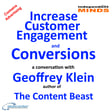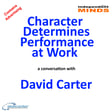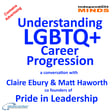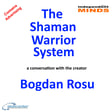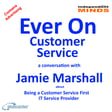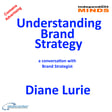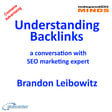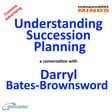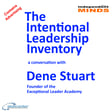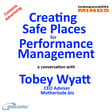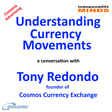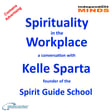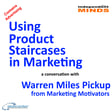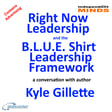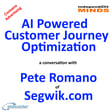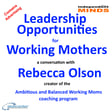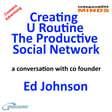
From Purpose to Profit – a conversation with author Erin Craske
Erin Craske has built more than forty product brands for large FMCG companies including, L'Oréal, Reckitt Benckiser, British American Tobacco, SSL International, Mars, P&G, and Walgreen Boots Alliance. Yet Erin describes herself as someone who does not fit into the corporate machine.
In this episode of the Abeceder podcast The Independent Minds, Erin and host Michael Millward discuss why businesses that prioritise profit over purpose often don’t do as well as companies that have a clearly defined purpose.
Erin uses her own experience to explain how having a clear purpose for each of the brands she worked on contributed to the success of that brand.
Find out more about both Michael Millward, and Jonathan Baum at Abeceder.co.uk
The Independent Minds is made on Zencastr, because as the all-in-one podcasting platform, on which you can create your podcast in one place and then distribute it to the major platforms, Zencastr really does make creating content so easy.
If you would like to try podcasting using Zencastr visit zencastr.com/pricing and use our offer code ABECEDER.
Audience Offers
Travel – Listeners to The Independent Minds can access discounted membership of the Ultimate Travel Club and book flights, hotels, trains, and holidays at trade prices.
Health – It is always a good idea to know the risks early so that you can take appropriate actions to maintain good health, that is why we recommend The Annual Health Test from York Test.
York Test provides an Annual Health Test. An experienced phlebotomist will complete a full blood draw at your home or workplace. Hospital standard tests covering 39 different health markers are carried out in a UKAS-accredited and CQC-compliant laboratory.
A Personal Wellness Hub gives access your easy-to-understand results and guidance to help you make effective lifestyle changes anytime via your secure, personal Wellness Hub account.
Visit York Test and use this discount code MIND25.
Telecommunications – Visit Three for information about business and personal telecom solutions from Three, and the special offers available when you quote my referral code WPFNUQHU.
Being a Guest
We recommend that potential guests take one of the podcasting guest training programmes available from Work Place Learning Centre.
We use Matchmaker.fm to connect with potential guests If you are a podcaster looking for interesting guests or if you have something interesting to say Matchmaker.fm is where matches of great hosts and great guests are made. Use our offer code MILW10 for a discount on membership.
We appreciate every like, download, and subscriber.
Thank you for listening.
